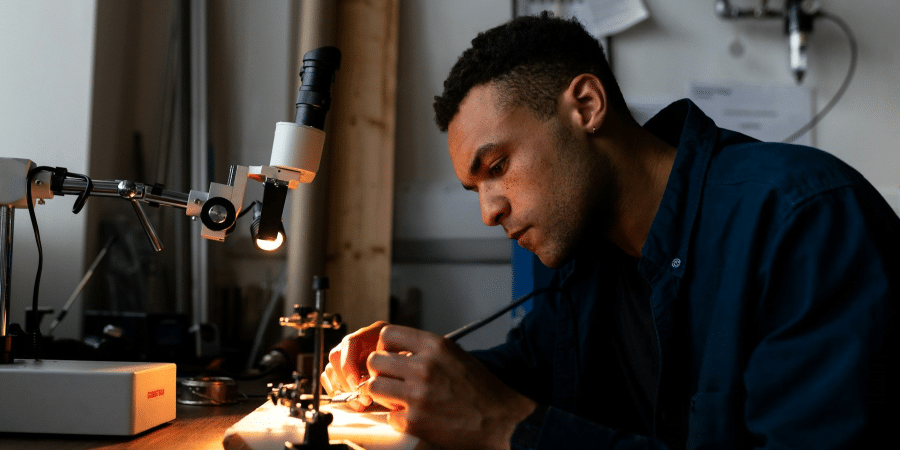Growing up in Dallas, TX, John Willding has not only watched the city grow, he has helped it become the home for many internationally recognized companies. After serving in the United States Army, he returned to Texas to start his college education at Southern Methodist University. From there, he then went to Law School at Rutgers and Graduate School at Harvard. He found his professional niche in mergers and acquisitions, and after twenty years, he still finds immense fulfillment in what he does.
Why did you decide to become a lawyer?
I didn’t grow up wanting to be a lawyer. I was a Liberal Arts major in college and had considered taking a more academic route, possibly working towards becoming a professor. As I continued my academic career, however, I just began gravitating more toward law and I found that I really enjoyed it. It was during my first few years as an attorney that I found myself drawn toward corporate law. Usually, if that is the path you want to take, you will get an undergraduate degree in finance or accounting. When I was starting out, however, several of my peers and partners in my firm discovered that I am very good at connecting people. I would connect them for their mutual benefit, and sometimes have an opportunity to connect them with my law partners in various practice areas.
What do you love most about mergers and acquisitions?
I really enjoy working with entrepreneurs. I like working directly with the decision makers. There is a lot of networking and trust-building necessary in corporate law, both of which I enjoy and do very well. I love the intensity of this specialty and getting to a closing. Typically, I work directly with the business owners as they prepare to sell their company, and stay with them throughout the process. Often, our exchanges have to be kept confidential. There is a lot that goes on in the background, which is where the lawyers come into the picture. I meet with other attorneys to negotiate the terms of the sale. I still really enjoy the whole process and seeing the satisfaction on all sides as we close deals.
What does your typical day consist of?
For me, a typical day consists of developing relationships with accountants, bankers, and private equity firms. I will have two to three meetings throughout the day, including meals. If I am involved in an active deal, I will coordinate matters relating to that with my team. My firm also works with philanthropic and community organizations. We try really hard to make a difference in our community.
What keeps you motivated?
I love what I do, so it honestly doesn’t really feel like work. It’s not an adversarial specialty, like family law. With mergers and acquisitions law, I am helping people see their dreams come true. Imagine a business owner who is ready to retire and wants to sell their company. I am the person who helps them through that process. It is a very rewarding and truly fulfilling accomplishment when the deals are finalized. I always look forward to it.
How do you motivate others?
I am honest and I don’t hide who I am. Anyone who works with me knows that they can be transparent with me and that I will be the same for them. A lot of big corporations tend to follow the path of least resistance, but I will stand up for what I believe in and what I feel is best for the client. I think the majority of people appreciate that openness, especially when I’m helping them sell their business.
How have you grown since you became an attorney?
There is a lot of complexity in what I do. There is a lot of on the job training, as well as a pretty steep learning curve when you first start out. It’s like buying a house; there is a lot of paperwork and a lot of things you may not have considered until you begin the process. When dealing with businesses, you have to consider things like real estate, employees, securities laws, intellectual property, and so much more. You have to be a subject matter expert and have great negotiation skills. Some companies work across borders and in that case, you need to consider local laws. All of these things I have learned throughout my twenty years as an attorney. I have worked with some really great attorneys in some excellent firms, so I feel I have learned from the best in their fields.
Where do you get your inspiration from?
I love watching Dallas emerge as a global city. I grew up here, so I have seen it grow over the last several decades. We went from having a few well-known companies housed here to having many internationally recognized companies. Dallas has focused on building the infrastructure to handle the expanding population. It is a pro-employer area, which means it is a great place for employees as well. I have helped with this growth and it has been inspiring throughout my career.
Who has been your role model and why?
My father was my original role model. He was a bomber pilot in World War II and an entrepreneur. I worked for a federal judge out of college and he was a role model to me, too. I was lucky to have gotten that position, as positions like that are highly sought-after. I had applied for many without success, and was about to move on when his administrative assistant called me. I actually got the job without an interview because the judge only asked to call my mother. She sold me well. I was a part of the Enron case and other major cases at that time, which has certainly helped my overall career. I have also worked with many law partners who have been excellent role models—those who still have love for the law many years into their career. I have learned from all of them.
How do you maintain a solid work-life balance?
At this point in my career, I am my own business center within a firm. Since I have my own clients, it doesn’t necessarily matter where I am because I am always able to work for my clients wherever I happen to be. I develop relationships with my clients. I meet a lot of them before they need my assistance, so there is already that rapport built into our relationship.
What traits do you possess that make you a successful leader?
I am never afraid to state my position, and always open to learning and changing my mind. I simply want the best result. I also have a great work ethic and it’s easy for me to throw myself into the work. I do my best to encourage and inspire younger attorneys. I think the fact that I still enjoy my work really helps me to be a good leader.
What suggestions do you have for someone just starting out as an attorney?
Most new attorneys are trial attorneys. Early in their careers, they will be handling disputes, depositions, and hearings in the courts. I would recommend at the very least for everyone entering the field to look into the possibility of transactional law, like real estate, finance, or corporate law. It can be just as rewarding as being a trial lawyer. If you have the focus, anyone can be an attorney. I think many people think that if they don’t start out their college education with the goal of being an attorney that they won’t get into law school. Most law schools don’t care whether your undergraduate education is in liberal arts, the hard sciences, or business. If a career in law is calling your name, answer the call!







